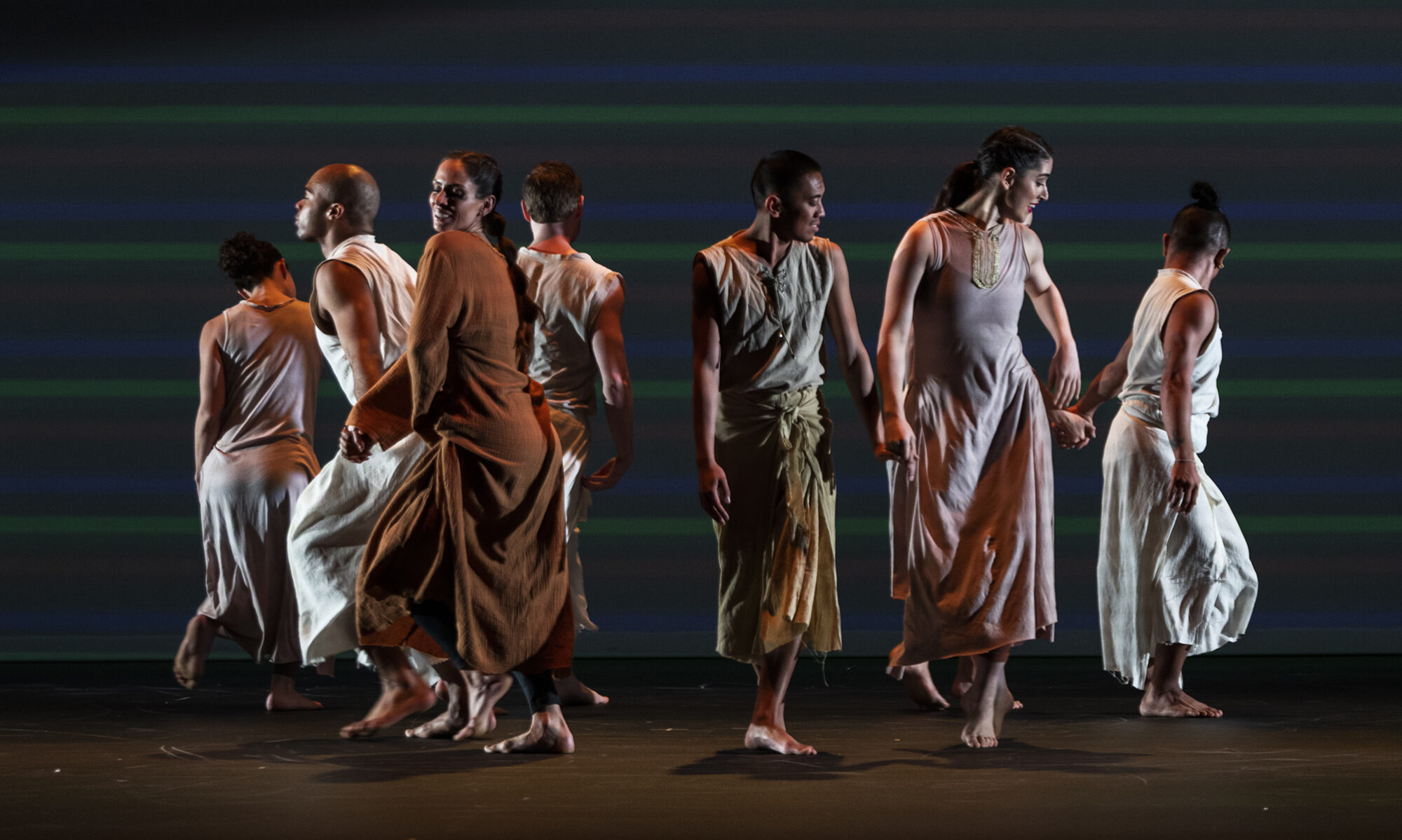Boxing Day Blues
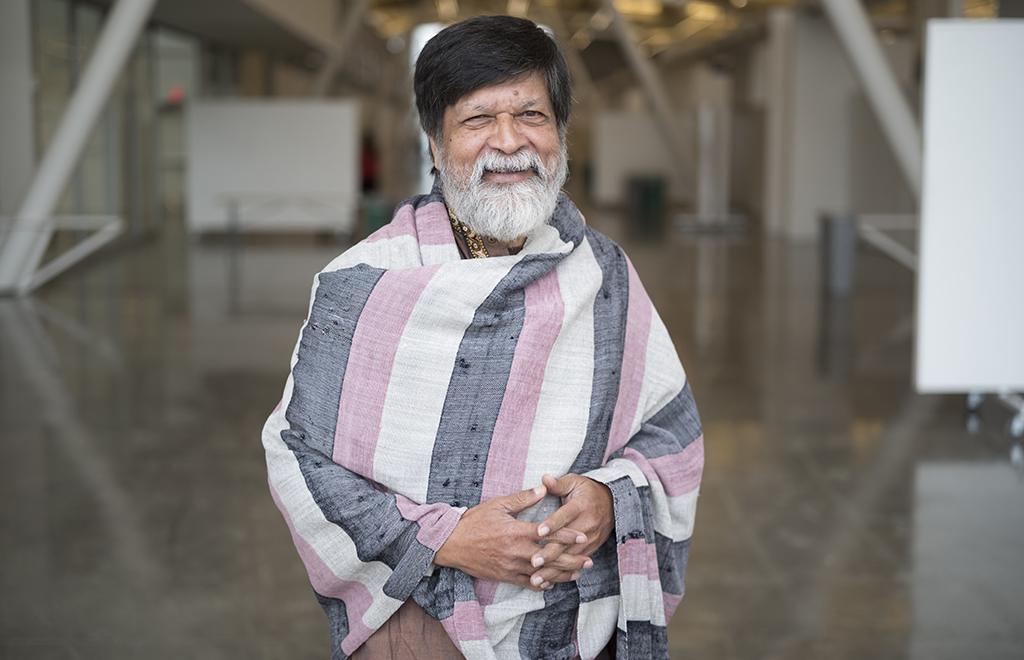
Shahidul Alam, acclaimed Bangladesh photographer and initiator of the first photography festival, Chobi Mela, in Asia, challenged the minds of festival managers and guests with his opening provocation to mark the start of the 15th Atelier for Young Festival Managers running from 23-29 March 2019 in Valletta. He reiterated the experience during the panel ‘Artists Changing the World’ at the Atelier for Young Festival Managers from 16 – 22 June 2021 in Düsseldorf, both organised by The Festival Academy. Alam openly shared his story, experience, and ongoing pursuit for social justice through media, education and culture, even in most harsh contexts, demonstrating the power of arts, community involvement and festivals as platforms for social change, resistance and possible ‘Spaces of Dissent’.
When Jolly’s son Asif asked me to take a portrait of him and his new bride Rifat, I took it on with grandfatherly pride. The photo session was booked for Sunday morning, the 26th December 2004. Boxing day.
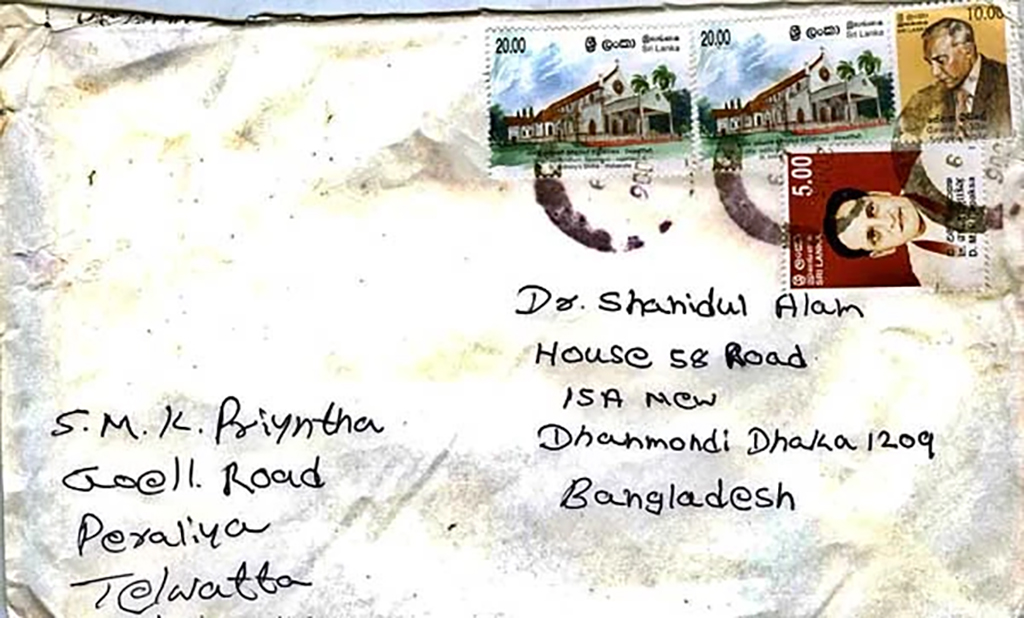
The envelope from Sri Lanka also arrived on Boxing Day. 2006. Priantha and his daughter Shanika had sent me Christmas greetings. I felt bad that I had not sent them one.
I used to love the winding path up to the hilltop house in Chittagong. Zaman Bhai was the chief engineer of the Chittagong Port Trust. One of the few Bangalis in high positions in 1971. It is thirty five years since the Pakistanis took him away, but even many years after liberation, my cousin Tuni Bu would still look for him. Anyone going to Pakistan would be given the task of trying to find out if there was any knowledge of where he might have been taken, what might have happened. One knows of course what must have happened, and I am sure Tuni Bu knows too, but that never stopped her from trying to find out. She was much older than me, and it was my nephews Bulbul and Tutul and my niece Jolly, that I was close to. Atiq was too young in those days to qualify for our friendship. The house had a fountain and the surrounding pool was our swimming pool. It was the only home I had ever known that had a pool. Technically I was of granddaddy status to Jolly’s son, and the young man reminded me of my own happy childhood.
While I played around with the studio lights, Asif told me of the Richter scale 9 earthquake that had hit Bangladesh. Of course I didn’t believe him. Richter 9 is big and there simply couldn’t have been an earthquake of such magnitude without anyone registering it. But I did turn on the news immediately after the portrait session, and the enormity of the disaster slowly sank in. I rang Rahnuma and asked her to turn on the television, and went back to work. By then however, the news of the carnage in places thousands of miles away started coming across the airwaves.
The next day the numbers steadily rose from the hundreds to thousands and we were glued to the set. Though we hadn’t said it out aloud to each other, both Rahnuma and I knew I had to go. BRAC had organized a training session for women journalists in their centre in Rajendrapur on the 28th. I had committed myself to the training some time ago and couldn’t really bail out at the last minute. On the way I heard from Arri that my friend in Colombo, Chulie de Silva, was missing. I kept losing the signal on my Grameen mobile phone on my way to and from Rajendrapur but near Dhaka I managed to get text messages through. Chuli was safe, but her brother had died.
Babu Bhai managed to get me a flight the next day via Bangkok. I had posted an angry message in ShahidulNews in response to the tourist-centric reporting in mainstream media and many friends responded. Margot Klingsporn from Focus in Hamburg wired me some money. Not waiting for the money to arrive, I gathered the foreign currency I could lay my hands on, packed a digital camera and a video camera along with my trusted Nikon F5 and left. That was when I made friends with Shanika.
http://www.zonezero.com/tsunami/shahidul/article.html
It was Chulie who helped trace her. She had heard my story and wrote to me that she had found a “Shanika Cafe” near Hikkaduwa. We had gone out together in search of the girl. When we did find Shanika and her dad Priantha, she rushed to my arms.
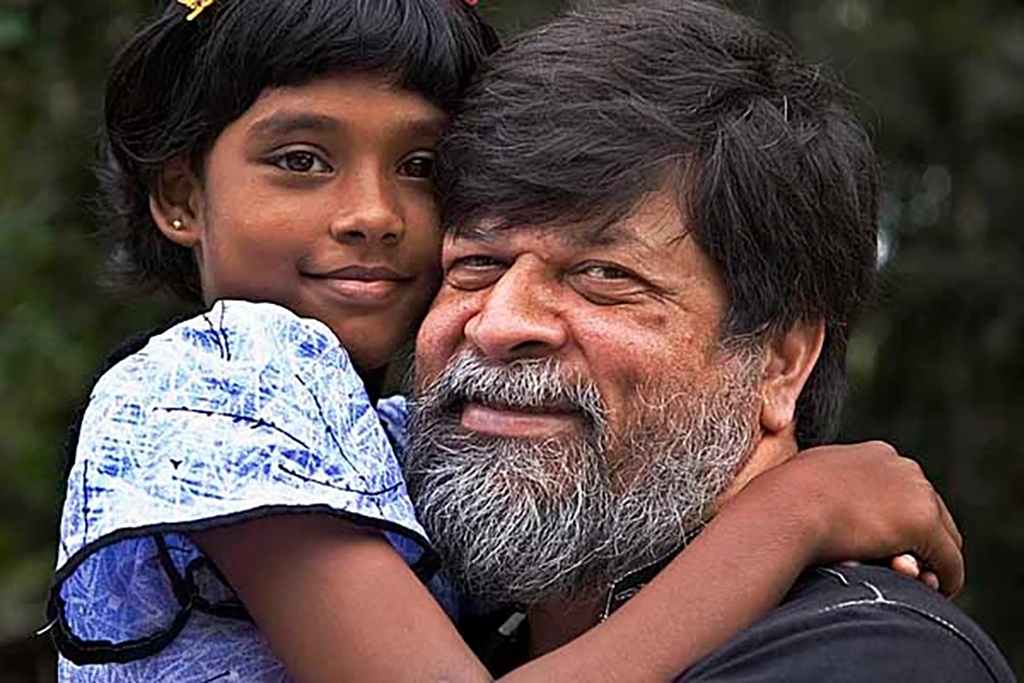
Through Chulie’s translations Priantha told me that Shanika had been withdrawn and wouldn’t relate to people. It was our friendship that had brought out the little girl.

More than the wreckage and the rotting flesh,
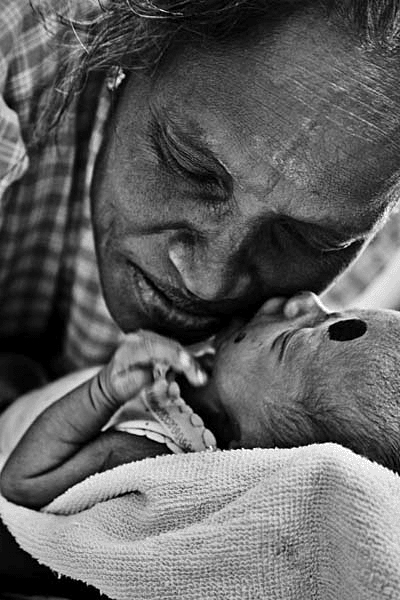
I remember the mother in the refugee camp stealing a kiss from her new born child.
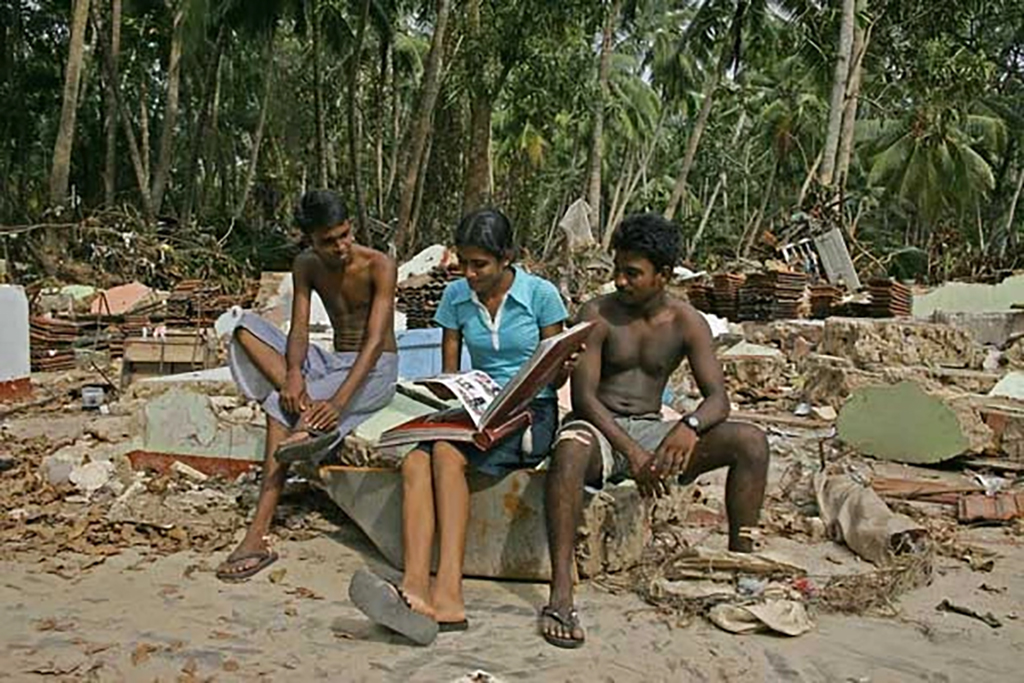
I remember the family sitting in the wreckage of their home in Hikkaduwa, going through the family album.
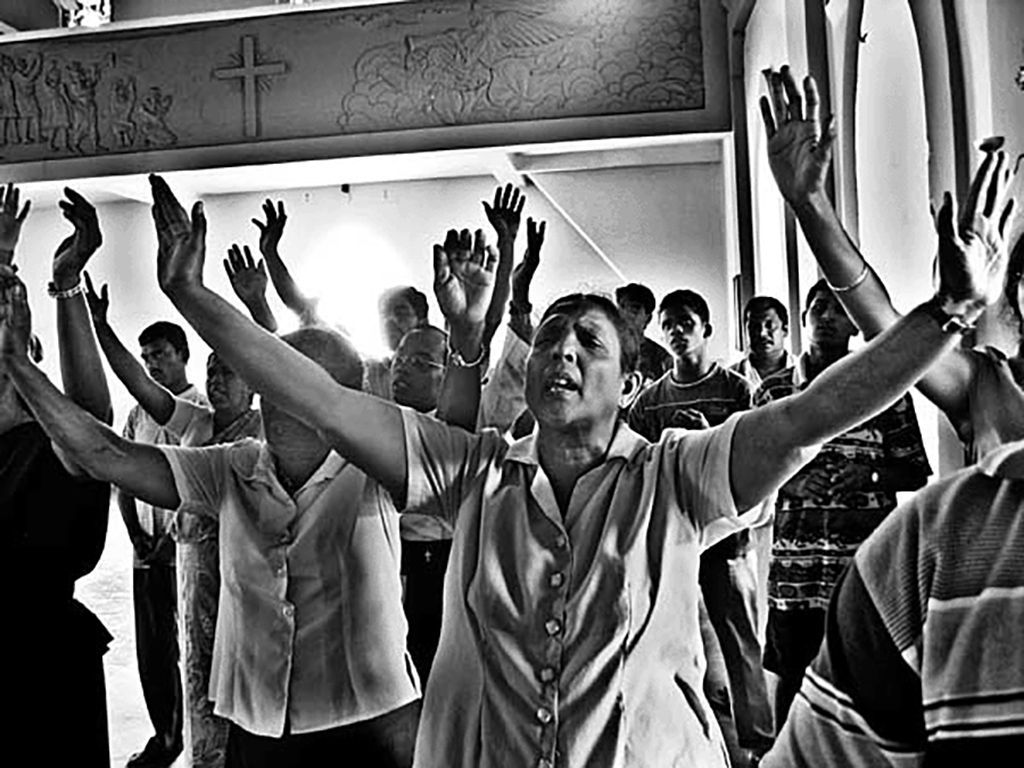
I remember the devotees returning to the Shrine of Our Lady of Matara Church to pray.
As a photojournalist we are touched by, and touch many people’s lives. Sometimes – not often – we are able to make a difference. But invariably we move on. On to another disaster, another success, another story in the making. The Shanikas of our stories, become yet more stepping stones in our career path, and the Christmas cards flow only in one direction.
This text was written by Shahidul Alam on 28 December 2006 and published on his blog. Shahidul was one of the contributors to EFA’s 70th anniversary Arts Festivals Summit and the 70-Years-On Conversations.
